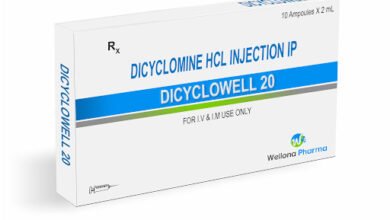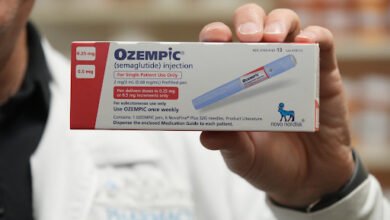COVID-19 vaccines for kids: What you need to know
Coronavirus disease 2019 (COVID-19) vaccines are now available to children in the U.S. Here’s what parents and kids need to know about the safety and effectiveness of the vaccine, the possible side effects, and the benefits of getting vaccinated.
If children don’t frequently experience severe illness with COVID-19, why do they need a COVID-19 vaccine?
A COVID-19 vaccine and booster, updated to the most common strain of the virus that causes COVID-19, might prevent your child from getting the COVID-19 virus or becoming seriously ill or hospitalized due to COVID-19.
Getting a COVID-19 vaccine can help your child more safely participate in sports and other group activities too.
What COVID-19 vaccines, additional primary shots and boosters are available to kids in the U.S.?
In the U.S., COVID-19 vaccines are available to children by age group:
-
Ages 6 months through 4 or 5 years old. The U.S. Food and Drug Administration (FDA) has given emergency use authorization to a Pfizer-BioNTech COVID-19 vaccine for children ages 6 months through 4 years old. This vaccine requires three shots. The first two shots are given three to eight weeks apart. The third shot is given at least eight weeks after the second shot. Research shows that the three shots have produced antibody levels similar to those in young adults after getting the Pfizer-BioNTech vaccine.
The FDA also has given emergency use authorization to a Moderna COVID-19 vaccine for children ages 6 months through 5 years old. This vaccine requires two shots, given four to eight weeks apart. It’s estimated that this vaccine is about 51% effective in preventing COVID-19 in babies ages 6 months through 23 months. For kids ages 2 through 5 years old, the vaccine is estimated to be 37% effective in preventing COVID-19.
Both vaccines contain lower amounts of mRNA than the mRNA COVID-19 vaccines for older children and adults.
-
Ages 5 or 6 through 11. The FDA has given emergency use authorization to a Pfizer-BioNTech COVID-19 vaccine for children ages 5 through 11. This vaccine involves two shots, given three to eight weeks apart. It contains a lower amount of mRNA than the Pfizer-BioNTech COVID-19 vaccine used for people age 12 and older. Research shows that this vaccine is about 91% effective in preventing COVID-19 in this age group.
The FDA also has given emergency use authorization to a Moderna COVID-19 vaccine for children ages 6 through 11. This vaccine requires two shots, given four to eight weeks apart. For kids in this age group, the Moderna vaccine causes an immune response similar to that seen in adults.
Both vaccines contain lower amounts of mRNA than the COVID-19 vaccines for people age 12 and older.
-
Ages 12 through 17. The FDA has approved the Pfizer-BioNTech COVID-19 vaccine, now called Comirnaty, for people age 12 through 17. This vaccine involves three shots. The first two are given three to eight weeks apart. The third shot, a booster, is given at least two months after the second shot. It contains the same amount of mRNA as the Pfizer-BioNTech COVID-19 vaccine for people age 16 and older. Research has shown that this vaccine is 100% effective in preventing COVID-19 in children ages 12 through 15.
This vaccine is 91% effective in preventing severe illness with COVID-19 in people age 16 and older.
The FDA also has given emergency use authorization to a Moderna COVID-19 vaccine for children ages 12 through 17. This vaccine requires two shots, given four to eight weeks apart. It contains the same amount of mRNA as the Moderna COVID-19 vaccine for people age 18 and older. For kids ages 12 through 17, the Moderna COVID-19 vaccine causes an immune response similar to that seen in adults.
The FDA has also given emergency use authorization to a Novavax COVID-19 vaccine for people age 12 and older. This vaccine requires two shots, given three to eight weeks apart. Based on research submitted to the FDA, in children age 12 through 17, this vaccine is about 78% effective in preventing symptomatic COVID-19 illness.
An eight-week interval between the first and second doses might be best for some people, especially males ages 12 to 39. A longer interval might increase protection against COVID-19 and reduce the risk of rare heart problems, such as myocarditis and pericarditis.
An additional primary shot of a COVID-19 vaccine can help people who are vaccinated and might not have had a strong enough immune response. The CDC now recommends that children age 6 months to 5 years who have a weakened immune system get at additional dose of the Moderna COVID-19 vaccine at least four weeks after their second shot.
Children ages 5 and older who have moderately or severely weakened immune systems should get additional doses of the Pfizer-BioNTech COVID-19 vaccine or the Moderna COVID-19 vaccine. This shot should be given at least four weeks after the second shot for kids ages 5 through 11 for the Pfizer-BioNTech COVID-19 vaccine and the Moderna COVID-19 vaccine. For kids ages 12 and older the additional shot should be given at least four weeks after the second shot for the Pfizer BioNTech COVID-19 vaccine and Moderna COVID-19 vaccine.
Booster doses can help people who are vaccinated and whose immune response weakened over time. Research suggests that getting a booster dose can decrease the risk of infection and severe illness with COVID-19.
These recommendations differ by age, what vaccines you have been given and the state of your immune system. But in general, people can get the booster shot at least two months after their last shot. People who recently had a positive COVID-19 test may think about waiting three months after their symptoms started to get the booster.
- Ages 6 months to 5 years. Kids ages 6 months through 5 years who got the Moderna COVID-19 vaccine can get an updated, called bivalent, Moderna COVID-19 vaccine booster. The booster is based on the original virus strain and two omicron strains.
- Age 5 and older. Kids age 5 who got the Pfizer-BioNTech COVID-19 vaccine can only get the updated Pfizer-BioNTech COVID-19 bivalent vaccine booster. People age 6 and older can choose between the Pfizer-BioNTech and the Moderna COVID-19 bivalent vaccine boosters.
- Booster doses for people with weakened immune systems. People age 5 and older who have a weakened immune system and have had all recommended doses of the Moderna, Pfizer-BioNTech or Novavax COVID-19 vaccines can get a booster dose of the updated Pfizer-BioNTech or Moderna COVID-19 bivalent vaccines.
How did the FDA determine the safety and effectiveness of the COVID-19 vaccines for use in kids?
For kids ages 5 through 11, the FDA reviewed a vaccine study of more than 4,600 children in this age range. Of this group, about 3,100 were given the Pfizer-BioNTech COVID-19 vaccine. The other children were given an inactive shot, also called a placebo. Children who were given the vaccine were monitored for side effects for at least 2 months after the second dose. Side effects were generally mild to moderate.
The FDA also took an early look at cases of COVID-19 that occurred one week after children were given a second dose of the vaccine. None of the children in this analysis had been previously diagnosed with COVID-19. Among 1,305 children given the vaccine, there were 3 cases of COVID-19. Among 663 children given the placebo, there were 16 cases of COVID-19. The results suggest that the vaccine is about 91% effective in preventing COVID-19 in this age group.
For kids ages 12 through 15, the FDA reviewed a vaccine study of more than 2,200 U.S. children in this age range. Of this group, about half were given the Pfizer-BioNTech COVID-19 vaccine. The other children were given a placebo shot.
A week after the second dose was given, there were no cases of COVID-19 in the 1,005 children given the Pfizer-BioNTech vaccine. Among 978 children given the placebo, there were 16 cases of COVID-19. None of the children had previously been diagnosed with COVID-19. The results suggest that the vaccine is 100% effective at preventing COVID-19 in this age group.
To determine the effectiveness of the Pfizer-BioNTech vaccine for kids ages 6 months through 4 and the Moderna COVID-19 vaccine for kids ages 6 months through 17 years old, the FDA looked at the immune responses of children in these age groups after they were fully vaccinated. The FDA compared those responses to the immune responses of young adults who’d been given higher doses of the same mRNA vaccine.
As with the other vaccines, side effects were recorded and a portion of the children were monitored for safety for at least two months after being fully vaccinated.
To determine the effectiveness of the Novavax COVID-19 vaccine, the FDA reviewed data on 2,232 people age 12 to 17. The research suggests that the vaccine was about 78% effective at preventing COVID-19 disease in this age group.
What are the side effects of the COVID-19 vaccines for kids?
Children given COVID-19 vaccines have side effects similar to those experienced by adults. The most commonly reported side effects include:
- Pain, redness or swelling where the shot was given
- Fatigue
- Headache
- Chills
- Muscle pain
- Fever
- Joint pain
- Swollen lymph nodes
- Nausea and vomiting
- Feeling unwell
Babies ages 6 months through 3 years old also might cry, feel sleepy or lose their appetite after vaccination.
Similar to adults, children have side effects within 2 days after vaccination that typically last 1 to 3 days. More children reported these side effects, except for injection site pain, after the second dose of the vaccine. However, some people have no side effects.
After your child is given a COVID-19 vaccine, they will be monitored for 15 to 30 minutes to see if they have an allergic reaction that requires treatment.
It isn’t recommended that you give your child an over-the-counter pain reliever before vaccination to prevent side effects. It’s OK to give this kind of medication after your child gets a COVID-19 vaccine.
Can COVID-19 vaccines affect the heart?
In the U.S., there has been an increase in reported cases of myocarditis and pericarditis after mRNA COVID-19 vaccination, particularly in males ages 12 to 29. Myocarditis is the inflammation of the heart muscle, while pericarditis is the inflammation of the lining outside the heart. These reports are rare.
Of the cases reported, the problem happened more often after the second dose of the COVID-19 vaccine and typically within one week of COVID-19 vaccination. Most of the people who got care quickly felt better after receiving medicine and resting. Symptoms to watch for include:
- Chest pain
- Shortness of breath
- Feelings of having a fast-beating, fluttering or pounding heart
If your child has any of these symptoms within a week of getting a COVID-19 vaccine, seek medical care.
If your child develops myocarditis or pericarditis after a dose of an mRNA COVID-19 vaccine, the CDC recommends avoiding getting another dose of any COVID-19 vaccine.
Is there any research on the long-term effects of the COVID-19 vaccines?
Because COVID-19 vaccine clinical trials only started in the summer of 2020, it’s not yet clear if the vaccines will have long-term effects. However, vaccines rarely cause long-term effects.
A portion of the children in each age group were monitored for safety for at least two months after being fully vaccinated.
In addition, in the U.S. all vaccination providers are required to report serious adverse events, such as allergic reactions, to a national program called the Vaccine Adverse Event Reporting System.
How do the mRNA COVID-19 vaccines work?
The Pfizer-BioNTech and the Moderna COVID-19 vaccines use messenger RNA, also called mRNA. Researchers have been studying mRNA vaccines for decades.
Coronaviruses have a spikelike structure on their surface called an S protein. COVID-19 mRNA vaccines give cells instructions for how to make a harmless piece of an S protein. After vaccination, muscle cells begin making the S protein pieces and displaying them on cell surfaces. The immune system recognizes the protein and begins building an immune response and making antibodies. After delivering instructions, the mRNA is immediately broken down. It never enters the nucleus of the cell, where DNA is kept.
Is there any difference in the COVID-19 vaccines for children and adults?
Yes. The Pfizer-BioNTech COVID-19 vaccine for children ages 6 months to 4 years old and the Moderna COVID-19 vaccine for children ages 6 months through 5 years contain lower amounts of mRNA than their COVID-19 vaccines for older children and adults.
The Pfizer-BioNTech COVID-19 vaccine for children ages 5 through 11 and the Moderna COVID-19 vaccine for children ages 6 through 11 also contain lower amounts of mRNA than their COVID-19 vaccines for people age 12 and older.
Smaller needles are also used to deliver the vaccine to the younger children.
Are there any children who shouldn’t get a COVID-19 vaccine?
COVID-19 vaccines shouldn’t be given to a child with a known history of a severe allergic reaction to any of its ingredients. If this is the case, your child might be able to get another COVID-19 vaccine in the future.
Can a COVID-19 vaccine give a child COVID-19?
No. The COVID-19 vaccines currently available and being developed in the U.S. don’t use the live virus that causes COVID-19.
Can a COVID-19 vaccine affect fertility or menstruation?
There is no evidence that any vaccines, including COVID-19 vaccines, cause fertility problems in men or women.
It’s not clear if getting COVID-19 or a COVID-19 vaccine causes changes in menstruation. A study of about 4,000 people suggests that getting a COVID-19 vaccine is linked with a less than one-day change in menstrual cycle length for each dose. Keep in mind that many things can affect menstrual cycles, including infections, stress, sleep problems, and changes in diet or exercise..
Can children who get COVID-19 experience long-term effects?
Anyone who has had COVID-19 can develop a post-COVID-19 condition. Research suggests that children with both mild and severe COVID-19 have experienced long-term symptoms. The most common symptoms in children include:
- Tiredness or fatigue
- Headache
- Trouble sleeping
- Trouble concentrating
- Muscle and joint pain
- Cough
These symptoms could affect your child’s ability to attend school or do his or her usual activities. If your child is experiencing long-term symptoms, consider talking to your child’s teachers about his or her needs.
How can children get a COVID-19 vaccine?
Consult your local health department, pharmacy or your child’s health care provider for information on where your child can get a COVID-19 vaccine.
How soon can a child get a COVID-19 vaccine before or after getting another vaccine?
A COVID-19 vaccine and other vaccines can be given on the same day.
Remember, COVID-19 vaccination will protect most people from getting sick with COVID-19. If you have questions or concerns about your child getting a COVID-19 vaccine, talk to your child’s health care provider. They might be able to help you weigh the risks and benefits.
From Mayo Clinic to your inbox
Sign up for free, and stay up to date on research advancements, health tips and current health topics, like COVID-19, plus expertise on managing health.
To provide you with the most relevant and helpful information, and understand which
information is beneficial, we may combine your email and website usage information with
other information we have about you. If you are a Mayo Clinic patient, this could
include protected health information. If we combine this information with your protected
health information, we will treat all of that information as protected health
information and will only use or disclose that information as set forth in our notice of
privacy practices. You may opt-out of email communications at any time by clicking on
the unsubscribe link in the e-mail.
Thank you for subscribing!
You’ll soon start receiving the latest Mayo Clinic health information you requested in your inbox.
Sorry something went wrong with your subscription
Please, try again in a couple of minutes
Dec. 17, 2022
Products and Services
.
Source link
#COVID19 #vaccines #kids



